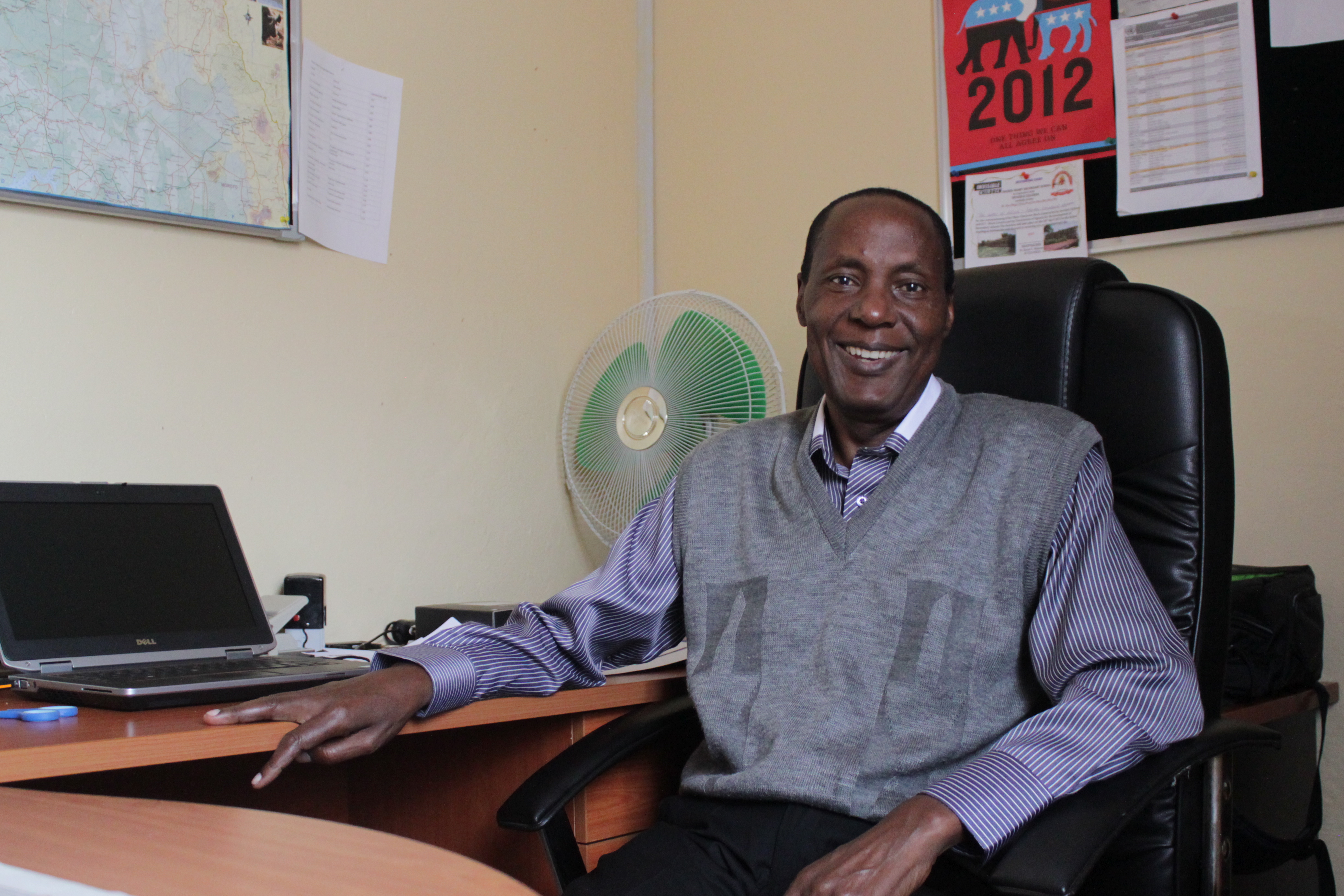Head of Office Elijah Muchiri already had his computer hooked up to the projector before the start of a recent program managers’ meeting at ICU. His desktop background? A colorful map of the world depicting time zones, continents and, interestingly, recent natural disasters. The map updates itself as events occur throughout the world and, based on his career in international development, it is not surprising that Elijah’s mind is always keyed into disaster management.
Elijah had already developed extensive management experience in community development, relief and recovery in conflict zones before he joined ICU as Head of Office in June 2012. He took a quick break from his hectic schedule last week to chat about his career in the non-profit sector, his thoughts on international development and vision for Invisible Children moving forward.
Elijah’s first taste of NGO work came soon after his graduation from university. He worked as a youth leader in Kenya, his home country, with the organization SOS Children’s Villages. In this position, he gained firsthand insight into working with vulnerable populations and understanding the benefits educational programming can have for a community.
He spent a number of years abroad, volunteering and working in Sri Lanka, Afghanistan and Democratic Republic of Congo, including with large organizations such as the United Nations Development Program and as the head of office for Mercy Corps for six years.
“I worked for so long in so many sectors and was enriched by programs and experiences. By the time I was joining IC, I think I was ready for this position,” Elijah said.
Bet even as a veteran if international development, Elijah enters new experiences with an open mind to identify the best ways to focus an organization’s efforts. At ICU, Elijah looks to make “sure the policies we have are well understood” by ICU staff, beneficiaries and ultimately, the wider community.
“We feel we are going strong. We have started thinking of what we can do as an organization to work together so we can face any challenges together,” he said.
He believes that a large part of international development is about giving local communities ownership of programs, so that they will continue the initiatives brought by ICU on their own.
“We facilitate development while [the community] is sitting in the driver’s seat. They learn the process and by time we exit, they are ready,” he said.
Finally, beyond considering the role that IC’s programming continues to play in northern Uganda, Elijah provides interesting perspective on changes within the field of international development. He suggests that the non-profit sector should be less about charity delivery and handouts, and more about working together so the beneficiaries can make a living for themselves.
“People [empowered by the NGO] must make profit from what they are doing,” he said.
And ultimately, while challenges exist throughout the non-profit sector, Elijah tends to focus on the positives.
“Invisible Children is a very young organization, but very dynamic. As young as it as, as small as it is, there is a lot of creativity and innovation. When I look at what is happening in the offices, it really encourages me when those people sit down and come up with those great ideas and say let’s move on, let’s try again, let’s risk this.”

Think people should hear about this?